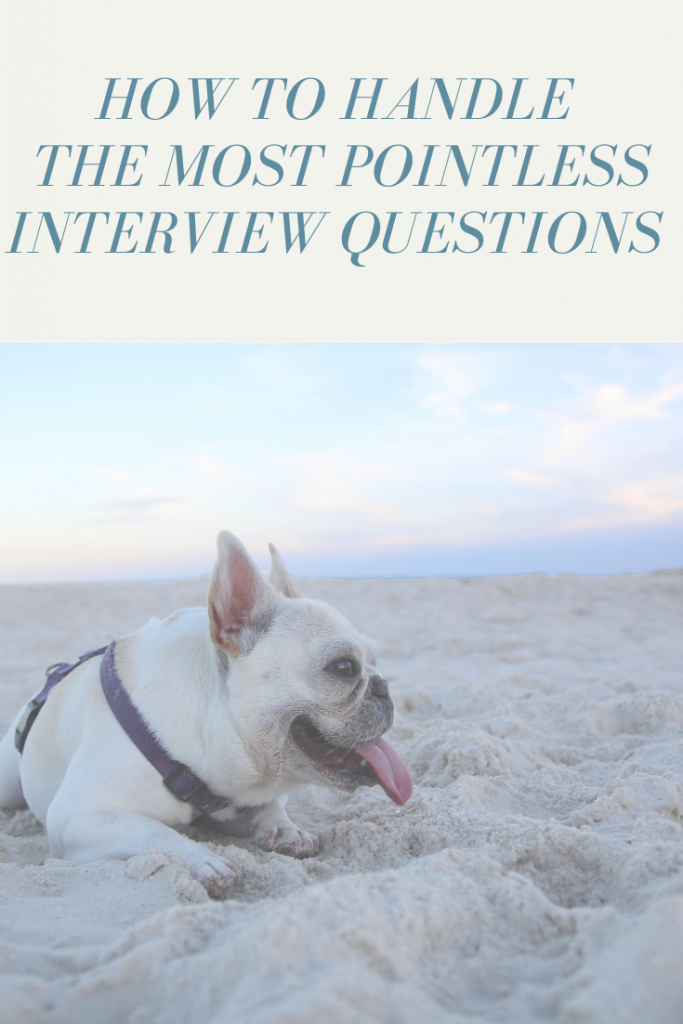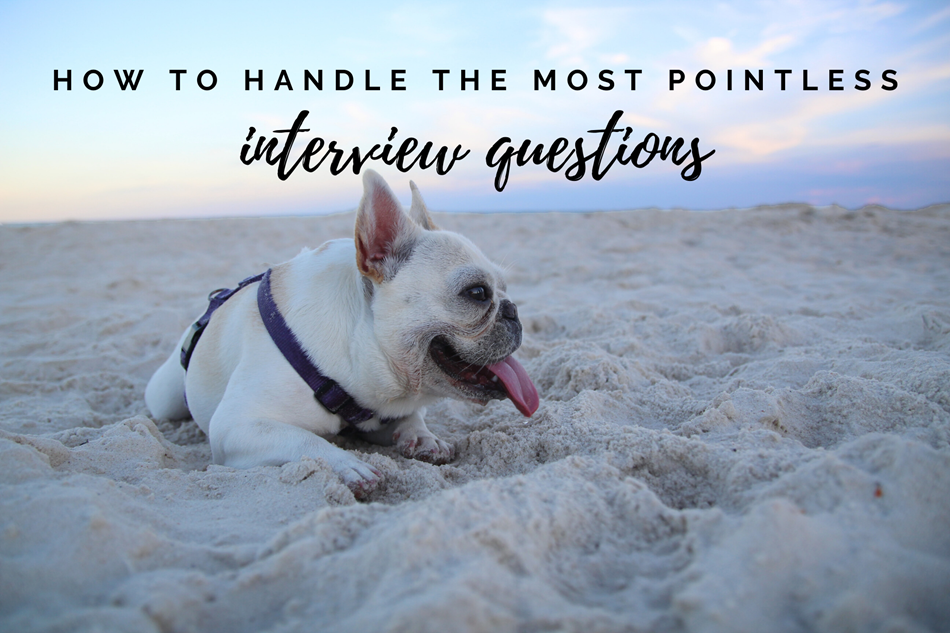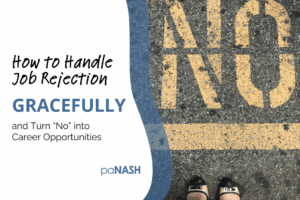|
|
In light of coronavirus times, one of my Facebook friends posted this the other day:
“So in retrospect, in 2015, not a single person got the answer right to ‘Where do you see yourself five years from now?'”
I commented:
“This is reason enough to retire such an overused and pointless interview question!”
Pointless interview questions
This common interview question is just one of many pointless interview questions hiring managers and recruiters continue to ask. I’m not sure they even know what to do with the answers to these questions when they get them. Kind of like how a dog probably wouldn’t know what to do with the car he chases if he ever caught it.
One article, written specifically to hiring managers to help them ask better questions, states these questions don’t make good use of the limited interview time, don’t reveal anything of value, and don’t impress the candidate. (Remember, they’re supposed to impress you too. Interviewing is a two-way street!)
Yet, interviewers continue to ask these questions. Maybe because it’s just how they’ve always done things. Therefore you still have to be prepared for them. However, this doesn’t mean you can’t give better answers than the average candidate.
And you should also be prepared for new alternatives to these questions. Just in case one of these interviewers happens to get a wild hair and try something new or different.
How not to sound like every other candidate
“Where do you see yourself in five years?”
When answering overused interview questions, always avoid using canned answers.
For instance, when answering, “Where do you see yourself in five years?”, don’t say, “I’d like to be working for your company, in a stable senior position, I’ve reached through steady progression.”
Instead, you can respond using your own personal vision and mission statements as the basis for your answer. You don’t have a personal vision or mission statement? You must’ve missed all my other posts about the importance of having a personal vision and mission statement.
These statements reflect the things most important to you, the values you possess, and the talents you have to offer. Therefore they’re unique to you. No one else will have a vision or mission exactly like yours.
And because they’re based on your long-term values, your vision and mission remain rather consistent. They evolve over time instead of changing on a regular basis. Therefore, at least you know whatever you’re doing in five years, it will be in support of your vision and mission.
To learn more about how to develop a vision and mission that are authentic to your values and talents, check out my book: Personal Branding: Why You Need to Know What Makes You YOUnique and AWEthentic.
“What’s your greatest weakness?”
Another pointless interview question is, “What’s your greatest weakness?” No one likes this question! But it’s likely you’ll still get it in your next interview. Again, don’t use canned answers when responding.
For instance, don’t say:
- “I’m too much of a perfectionist.”
- “I work too hard.”
- “I’m a bit too passionate when it comes to my work.”
Instead, respond using the tips I shared in my post, “How to Answer ‘What Is Your Greatest Weakness?’“. These tips include:
- Understanding why this question is being asked.
- Listening to how the question is asked.
- Not negating your strengths.
- Never answering with a trait.
- And knowing how to follow up with a positive.
Click here for more details.
“If you were an animal, what animal would you be?”
Personally, I love this question. I think it’s one of the easiest questions to help you communicate your skills and strengths.
To answer it well, just think of one of your best skills and what animal represents that skill. For example,
- Strong leader = a lion.
- Clear communicator = a dolphin.
- Adaptable to different settings = a chameleon.
- Wise decision-maker = an owl.
- Good at conflict resolution = a dove.
You get the picture. Just don’t forget to include why you chose a certain animal! Then follow it up with one specific and interesting example of how you’ve demonstrated this particular skill in the past.
Alternative interview questions to be prepared for
Some interviewers have caught on to the pointlessness of these types of interview questions. Therefore they’ve come up with alternative ways to ask the same question in order to solicit a more honest response. As a result, you should be prepared for questions like:
- “What annoys you?” (I personally know a recruiter who asks this in place of the “greatest weakness” question.)
- “If I asked your references what your biggest weakness is, what would they likely say?” (This doesn’t necessarily mean they’re going to ask your references this question, but you can never be sure.)
- “How can you make an impact on this company in the first 12 months of the job?”
- “Tell me what you’ve accomplished in the last five years.” (This is a better question because past behavior is a good predictor of future behavior.)
- “What would your boss, co-workers, and staff all agree about you?”
If you need help determining how to best answer these questions, consider some of paNASH’s one-on-one career coaching services.
Conclusion
Old habits die hard. This includes interviewers’ habit of asking pointless interview questions. So make sure you’re prepared for the predictable. And be open to and refreshed by the occasional unexpected questions. Remember, the kind of questions an interviewer asks says a lot about a company.
Related sources
- Excerpt from the book Personal Branding: Why You Need to Know What Makes You YOUnique and AWEthentic
- Blog post: “How to Answer ‘What Is Your Greatest Weakness?'”
- Free Video: The Most Common Job Interview Mistakes and How to Avoid Them






